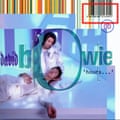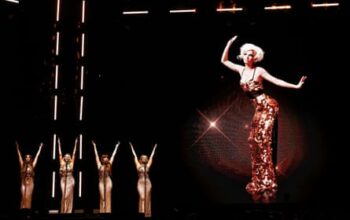I
Although it may not be considered David Bowie’s greatest album, Hours… holds the most value out of all his works during the 1990s. Its significance does not lie within the music itself, but rather in its release as the first album from a notable artist on a prominent record label to be available as a digital download before its physical debut.
In August 1999, Rolling Stone discussed the upcoming release of the album Hours… which they described as a “cyber-coup”. This album continued Bowie’s interest in releasing music online, which he first started with the single Telling Lies in 1996. He was also very enthusiastic about webcasting and even created his own internet service provider, BowieNet, in 1998. Bowie stated, “I am delighted to have the opportunity to bring the music industry closer to digital downloads becoming the norm rather than the exception.” He acknowledged that not everyone had access to broadband at the time and expected the success of the experiment to be measured in hundreds rather than thousands of downloads. He compared this step towards digital music to the initial introduction of color TV and film on home video tapes, which paved the way for expanded consumer usage. He expressed hope that this small step would lead to bigger advancements for himself and other artists, ultimately giving consumers more options and easier access to the music they love.

In the early months of 1998, Virgin Records/EMI decided to release Massive Attack’s Mezzanine for streaming online, along with its physical release. However, this was done gradually over several weeks, with one track being released at a time. The British Phonographic Industry (BPI) expressed concern over this method, fearing that it could lead to an increase in piracy as people could easily download and burn the album onto CDs. Despite this caution, other major labels and their artists still continued to experiment with streaming. In June of 1999, both Def Leppard and Red Hot Chili Peppers released their latest albums, Euphoria and Californication, respectively, for streaming online four days before their official release dates. Bob Merlis from Warner Bros, the Chili Peppers’ label, stated that gaining airplay through streaming was still considered successful, as the music was not available for download.
The release of the Bowie album was intended to be a major advancement. In 1999, he was interviewed by Jeremy Paxman from BBC Newsnight where he discussed his career, art, and the internet – a topic that particularly excited him. The 16-minute interview can still be found on the BBC website and is often shared, especially since Bowie’s passing in January 2016, as proof of his foresight on the impact of the internet on art, politics, and society. He told a skeptical Paxman that he believes the potential for the internet to shape society, both positively and negatively, is impossible to fathom. He also stated that we are on the brink of something both exhilarating and terrifying. Paxman, in his characteristic manner, argued that the internet is merely “a tool”, prompting Bowie to passionately oppose him by declaring it to be an alien life form.
He continued by stating that the internet would drastically alter the way we consume content: “The relationship between the user and the provider will be so harmonious that it will challenge our traditional concepts of media.”
After the cameras stopped rolling, Paxman most likely made a face, but Bowie’s assertion was ultimately proven correct. While he was not the first to voice these ideas, Bowie had a knack for bringing fringe concepts to the mainstream, a pattern he had established throughout his career. For his promotional efforts for “Hours…”, Bowie launched a competition inviting fans to help complete the lyrics for the song “What’s Really Happening?”. The demo version was made available online, and 20-year-old fan Alex Grant from Ohio was ultimately chosen as the winner. The finished recording was streamed online using a 360-degree camera, and Grant received a songwriting credit alongside Bowie and Reeves Gabrels. Bowie expressed, “The most rewarding part of the evening for me was giving Alex and his friend Larry the chance to sing on the song that Alex wrote. It was a unique way to wrap up the session.” Bowie’s website labeled it as the “first true cyber-song.”
Using tact, Andrew Pollock, VP of marketing for HMV North America, expressed, “We have a preference for traditional methods. However, this is the direction things are moving in and we must adapt.”
The digital version of the album was initially exclusive to the US before the CD version was released. However, British retailers were worried about the implications this could have on their industry. Brian McLaughlin, the chairman of music retailer trade group Bard and managing director of HMV Europe, emphasized the importance of UK labels informing their international affiliates about the potentially disruptive impact of internet initiatives accessible in the UK. He also stated the need for careful management to ensure all parties benefit from this exciting development.
While there were heavy hints about a retailer boycott of labels or artists if they tried something similar in the UK, much of this was posturing. In the Netherlands, however, the chain Free Record Shop claimed it would pull all his albums from its shelves. In the US, meanwhile, Carl Singmaster, founder of the Manifest chain, claimed releasing an album as a download two weeks ahead of the physical disc is “driving customers to online and teaching them stores are not cool and [are] passé”.
Bowie recognized the heated state of the retail community and believed that it could be intensified even further. He stated, “I guarantee that the music industry will not revert back to being controlled by record companies and sold through physical stores. In the next five years, the industry will undergo such a transformation that it will be unrecognizable.”
“I am reluctant to admit it, as I am a major David Bowie fan, but from a business standpoint it was quite upsetting,” says Glen Ward, the president and CEO of Virgin Entertainment Group. In 1999, while Ward was busy establishing the Virgin Megastore brand in the US, Bowie’s actions caused frustration. “I understand his motives – pushing boundaries and creating awareness. However, from a business perspective, it was quite bothersome,” adds Ward. Matt Black, one half of Coldcut and co-founder of the Ninja Tune label, was an early advocate for digital technology and the potential of the internet. However, he also understands the disappointment felt by traditional retailers who saw Bowie’s actions as a betrayal. “If I were a record store selling vinyl and a dedicated Bowie fan, working tirelessly to promote his album, I would have been quite upset.”
At the time of the Bowie album release, the use of the internet and online purchasing were not yet common activities. According to the Computer Industry Almanac, there were 147 million people worldwide who used the internet at least once a week in 1998, which was more than double the number in 1996. However, despite the growing numbers, there was still a significant reluctance to pay for online content in 1999, possibly due to the belief that everything online should be free and concerns about sharing bank information with website owners.

In his article published on 13 November in Billboard, journalist Ed Christman proposed that Bowie’s predictions were overambitious and lacked solid evidence. According to Christman, EMI/Virgin reported that Bowie’s album Hours… had only sold 989 downloads during its two-week exclusivity period, compared to 29,000 physical copies sold in the US during its first week. Christman pointed out that the current demand for paid music downloads is relatively low, estimated to be in the range of 1,000-2,000, and even questioned this number. He suggested that a large portion of the 989 downloads were likely purchased by music industry professionals who were simply testing out the new downloading technology.
After 25 years, Jay Samit, the former senior vice president of new media at EMI Recorded Music, reflects on the release of Hours… which was ahead of its time. He praises Bowie for his forward-thinking and collaborative nature. However, Samit mentions that the title “Hours…” was not well thought out, as it took just as long to download the album at the time. According to EMI, 23.9% of consumers who bought the album as a download required technical support, but the label was prepared for a higher number. Samit explains that downloading at the time was not always smooth, as interruptions like phone calls would disrupt the process. Despite receiving lots of media attention, many people were still unfamiliar with how to download an album.
However, he contends that this was another example of Bowie foreshadowing the future. He aimed to educate fellow artists and ensure the support and funding of digital music companies by Silicon Valley. Samit believes that Bowie was successful in educating the music industry and venture capitalists.
Simon Wright, the director in charge of Virgin Retail UK, expressed that David Bowie had a deep understanding of his audience and was able to satisfy their demands. He also had the foresight to anticipate changes, which the record industry could have benefitted from had they adopted his mindset.
As we look back on 2024, the fuss over selling an album for download in 1999 appears outdated. However, this album and its release marked a significant shift away from traditional methods, encapsulating the state of the music industry. Would you rather fast-forward to tomorrow? Or continue to live in the past until it stifles you?
Source: theguardian.com


